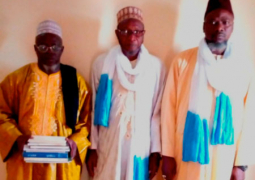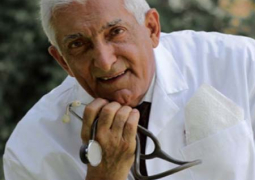There is serious questioning of the role of media, and a suspicion that the media distorts, fictionalizes, treats as gossip or as soap opera serious public matters. We need a new discourse. Not rhetorical, not entertaining, not intellectual. But a discourse that is conversational, heart to heart, that speaks frankly of what most needs to be done and why.
The importance of the media today is immense. Never before in mankind's history have the media had such a significant impact on our lives and behavior.
The media have long served as a watchdog for the public, watching every action of our elected officials and "growling" when necessary.
Thomas Jefferson felt so strongly about the principle of free expression that he said something that non-democrats must regard as an absurdity:
"If it were left to me to decide whether we should have a government without newspapers or newspapers without a government, I should not hesitate a moment to prefer the latter."
The media help the economy survive, both by bringing the businessmen and the consumer together - through advertising - and by keeping the public informed on the state of the economy.
Like the sentry at the gate, the media watch the horizon and announce what or who is approaching before it gets there. The media do this as part of the watchdog role, too.
A self-governing society, by definition, needs to make its own decisions. It cannot do that without hard information, leavened with an open exchange of views. Abraham Lincoln articulated this concept most succinctly when he said: "Let the people know the facts, and the country will be safe."
"What caused the press to become an instrument for democratic decision-making was the variety of voices. Somehow, the common truth managed to emerge from under that chaotic pile of information and misinformation." A quest for objectivity was the result.
Many critics have questioned whether there is such a thing as "objectivity." Indeed, no human being can be truly objective; we can only seek objectivity and impartiality in the pursuit of truth. Journalists can try to keep their personal views out of the news, and they employ a number of techniques to do so, such as obtaining and quoting multiple sources and opposing views.
The question is whether the truth always serves the public. At times, the truth can do harm. If the truthful report of a small communal conflict in, say, Africa, leads to more civil unrest, is the public really being served? The journalistic purists - often those sitting in comfortable chairs far from conflict - say it is not their job to "play God" in such matters, and that one should not "shoot the messenger for the message."
"There is no room for dictating taste in the diverse and dynamic world of media. To limit taste only limits the role we play for people of all kinds."
Lachlan Murdoch
Read Other Articles In Article (Archive)
Mansally’s Real Salt Lake in MLS playoff
Oct 30, 2012, 11:06 AM



